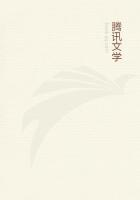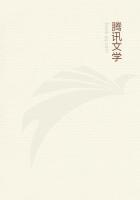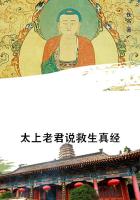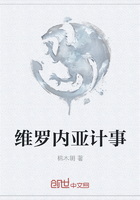(4.iii.4) After labour has been divided and distributed, to any considerable extent, and eachproducer confines himself to some one commodity or part of a commodity, a small portion onlyof what he produces is used for his own consumption. The remainder he destines for the purposeof supplying him with all the other' commodities which he desires; and when each man confineshimself to one commodity and exchanges what he produces for what is produced by otherpeople, it is found that each obtains more of the several things, which he desires, than he wouldhave obtained, had he endeavoured to produce them all for himself.
(4.iii.5) So far as a man consumes that which he produces, there is, properly speaking,neither supply nor demand. Demand and supply, it is evident, are terms which have reference toexchange; to a buyer and a seller. But in the case of the man who produces for himself, there isno exchange. He neither offers to buy any thing nor to sell any thing. He has the property; he hasproduced it; and does not mean to part with it. If we apply, by a sort of metaphor, the termsdemand and supply to this case, it is implied, in the very terms of the supposition, that thedemand and supply are exactly proportioned to one another. As far then as regards the demandand supply of the market, we may leave that portion of the annual produce, which each of theowners consumes in the shape in which he produces or receives it, altogether out of the question.
(4.iii.6) In speaking here of demand and supply, it is evident that we speak of aggregates.
When we say of any particular nation, at any particular time, that its supply is equal to its demand, wedo not mean in any one commodity, or any two commodities. We mean, that the amount of itsdemand, in all commodities taken together, is equal to the amount of its supply in allcommodities taken together. It may very well happen, notwithstanding this equality in thegeneral sum of demands and supplies, that some one commodity or commodities may have beenproduced in a quantity either above or below the demand for those particular commodities.
(4.iii.7) Two things are necessary to constitute a demand. These are, 1st, a wish for thecommodity; 2dly, an equivalent to give for it. A demand means the will to purchase, and themeans of purchasing. If either is wanting, the purchase does not take place. An equivalent is thenecessary foundation of all demand. It is in vain that a man wishes for commodities, if he hasnothing to give for them. The equivalent which a man brings is the instrument of demand. Theextent of his demand is measured by the extent of his equivalent. The demand and the equivalentare convertible terms, and the one may be substituted for the other. The equivalent may be calledthe demand, and the demand the equivalent.
(4.iii.8) We have already seen, that every man, who produces, has a wish for othercommodities, than those which he has produced, to the extent of all that he brings to market. And it is evident,that whatever a man has produced, and does not wish to keep for his own consumption, is astock which he may give in exchange for other commodities. His will, therefore, to purchase,and his means of purchasing, in other words, his demand, is exactly equal to the amount of whathe has produced and does not mean to consume.
(4.iii.9) But each man contributes to the general supply the whole of what he has producedand does not mean to consume. In whatever shape any part of the annual produce has come into hishands, if be proposes to consume no part of it himself, he wishes to dispose of the whole; andthe whole, therefore, becomes matter of supply: if he consumes a part, he wishes to dispose ofall the rest, and all the rest becomes matter of supply.
(4.iii.10) As every man's demand, therefore, is equal to that part of the annual produce, or ofthe property generally, which he has to dispose of, and each man's supply is exactly the same thing,the supply and demand of every individual are of necessity equal.
(4.iii.11) Demand and supply are terms related in a peculiar manner. A commodity which issupplied, is always, at the same time, a commodity which is the instrument of demand. Acommodity which is the instrument of demand, is always, at the same time, a commodity addedto the stock of supply. Every commodity is always, at one and the same time, matter of demand,and matter of supply. Of two men who perform an exchange, the one does not come with only asupply, the other with only a demand; each of them comes with both a demand and a supply. Thesupply, which he brings, is the instrument of his demand; and his demand and supply are ofcourse exactly equal to one another.
(4.iii.12) But if the demand and supply of every individual are always equal to one another,the demand and supply of all the individuals in the nation, taken aggregately, must be equal.
Whatever, therefore, be the amount of the annual produce, it never can exceed the amount of theannual demand. The whole of the annual produce is divided into a number of shares, equal tothat of the people to whom it is distributed. The whole of the demand is equal to as much of thewhole of the shares as the owners do not keel) for their own consumption. But the whole of theshares is equal to the whole of the produce. The demonstration, therefore, is complete.
(4.iii.13) How complete soever the demonstration may appear to be, that the demand of anation must always be equal to its supply, and that it never can be without a market sufficientlyenlarged for the whole of its produce, this proposition is seldom well understood, and issometimes expressly contradicted.
(4.iii.14) The objection is raised upon this foundation, that commodities are often found tobe too abundant for demand.
(4.iii.15) The matter of fact is not disputed. It will easily, however, be seen, that it affects notthe certainty of the proposition which it is brought to oppugn.















